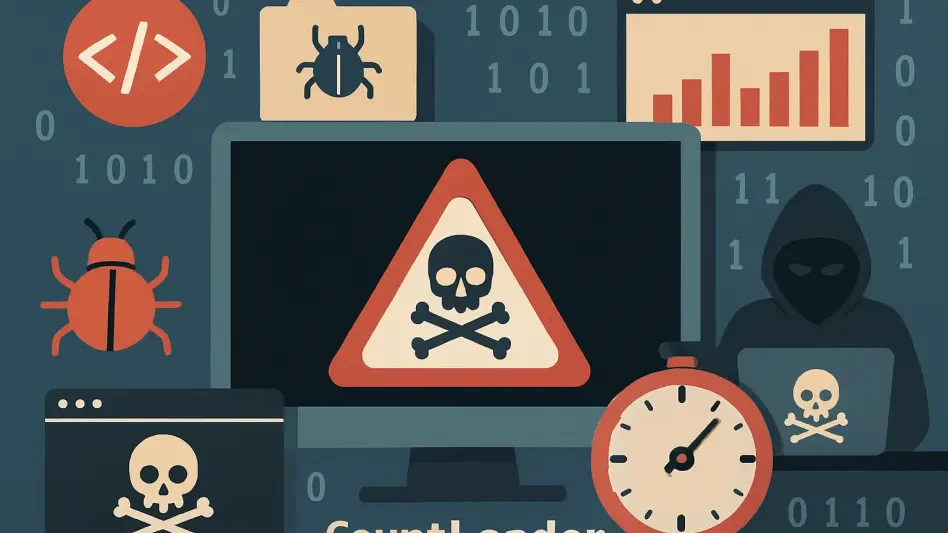The increasing frequency and sophistication of cyber attacks have placed the National Health Service (NHS) in a precarious position, demanding a robust response to fortify its cyber defenses. Recent findings reveal a significant gap in cyber security training, which is critical for the preparedness of NHS staff. Despite the high awareness of cyber threats among staff members, a considerable number of them have voiced concerns about the current protective measures and the adequacy of their training to deal with these evolving threats. A comprehensive approach integrating advanced training, technological upgrades, and collective action is necessary to build a resilient NHS.
Discrepancies in Cyber Security Measures
Recognition and Confidence in Cyber Defense Roles
A study by BT highlights a rather paradoxical situation: an overwhelming 94% of NHS personnel recognize their individual roles in cyber defense, yet only 36% believe that the existing protective measures are adequate. This disparity points to a crucial need for an overhaul in the system’s approach to cyber security. Outdated systems, which are a concern for 64% of the staff, pose a significant barrier to effective data operability and consequently impact patient care. Additionally, a mere 42% of employees trust the current digital safeguards to protect sensitive patient information adequately.
Despite recent improvements, the broader picture remains troubling. Training in new technologies might have seen a rise from 5% in 2022 to 15% in 2024, but the overall decline in training from 47% to 39% during the same period has led to a call for more comprehensive cyber security training by 60% of frontline workers. This sentiment underscores the essential need for continuous and up-to-date training programs to equip NHS staff with the tools and knowledge necessary to counter cyber threats effectively.
The Role of Secure Systems and Advocacy for Training
Professor Natasha Phillips underscores that secure systems are fundamental to healthcare, asserting that cyber security is not just an IT issue but a critical component of patient safety and care efficiency. She advocates for a collective effort combining technology, training, and trust to build a resilient and secure NHS. The call for a systematic update in the NHS’s cyber security protocols is not just about new technologies but about integrating these advancements into everyday practice through comprehensive training programs.
The importance of such measures is further supported by a YouGov survey revealing public concerns. Around 60% of the UK public fears that cyber attacks could disrupt NHS systems, while 56% are worried about potential data breaches. This public anxiety highlights the significant implications of cyber security challenges not only within the NHS but also for the broader societal trust in healthcare services. Professor Sultan Mahmud echoes these sentiments, pointing out the necessity for the NHS to keep pace with increasing cyber threats, which pose substantial risks to both patient care and service integrity.
Real-World Implications of Cyber Vulnerabilities
Threats Exposed by Recent Incidents
Recent cyber incidents have vividly exposed the NHS’s vulnerabilities. For example, the HCRG Care Group reported an investigation into a suspected ransomware attack in February 2025, illustrating the constant pressure and threat environment NHS organizations operate within. Such incidents bring to light the inadequacies in current cyber defense mechanisms and underscore the urgent need for a robust cybersecurity framework.
In June 2024, a cyber attack on Synnovis resulted in long-term harm to at least two patients, further emphasizing the direct impact of security breaches on patient care. Additionally, a cyber incident in November 2024 at Wirral University Teaching Hospital severely disrupted cancer treatment waiting times, demonstrating how operational disruptions due to cyber attacks can have profound consequences on patient health outcomes.
Call for Comprehensive Solutions
The increasing frequency and sophistication of cyber attacks have put the National Health Service (NHS) in a vulnerable position, necessitating a robust response to strengthen its cyber defenses. Recent studies indicate a significant gap in cyber security training, which is essential for preparing NHS staff. Despite a high level of awareness about cyber threats among staff members, many have expressed concerns regarding the current protective measures and whether their training is sufficient to handle these evolving threats.
To address these issues, a comprehensive approach is required. This includes advanced training for staff, technological upgrades, and a collective effort to build a resilient NHS. Enhancing cyber defenses isn’t just about technology; it’s also about ensuring staff have the knowledge and skills to protect sensitive data and respond effectively to attacks. By integrating these elements, the NHS can improve its defensive posture, making it more resilient against future cyber threats. A coordinated and well-rounded strategy is critical to safeguarding the NHS from the escalating cyber threat landscape.







